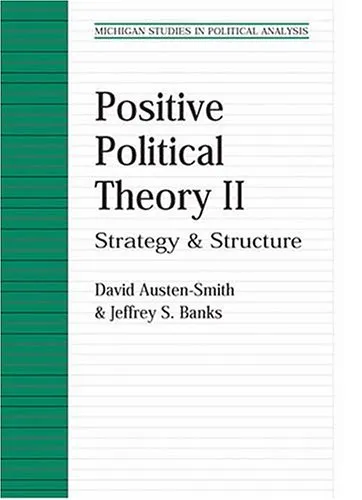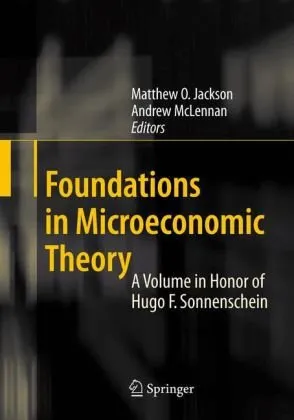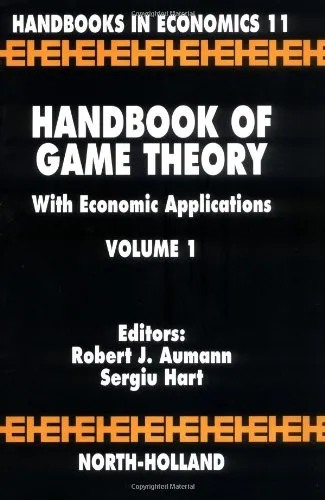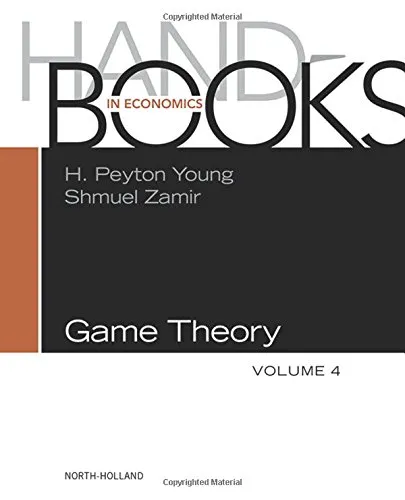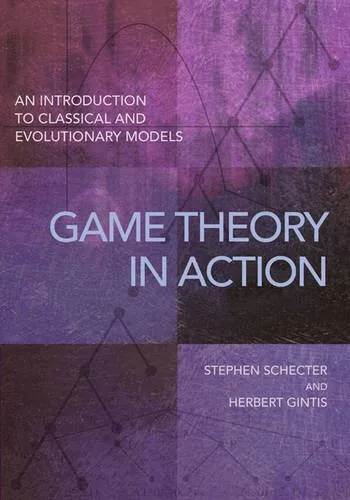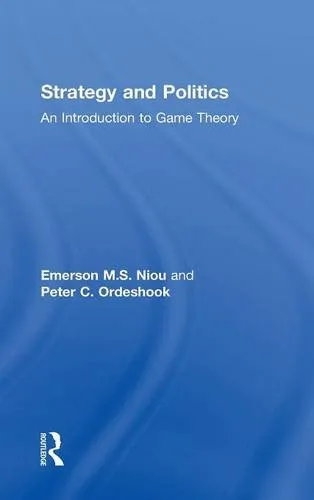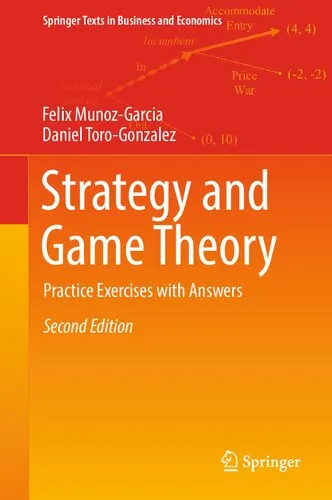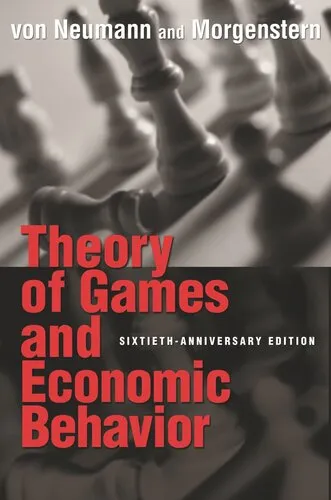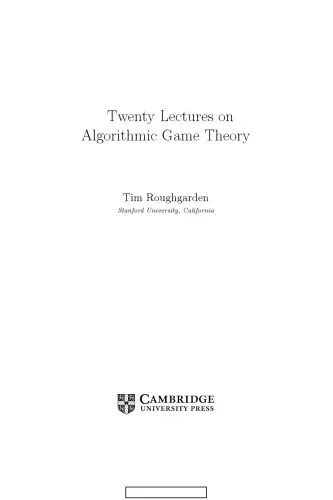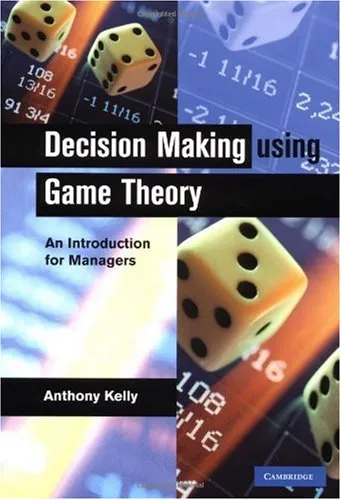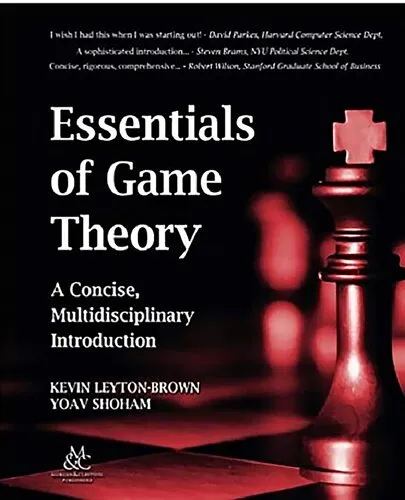Positive Political Theory II: Strategy and Structure (Michigan Studies in Political Analysis)
4.9
بر اساس نظر کاربران

شما میتونید سوالاتتون در باره کتاب رو از هوش مصنوعیش بعد از ورود بپرسید
هر دانلود یا پرسش از هوش مصنوعی 2 امتیاز لازم دارد، برای بدست آوردن امتیاز رایگان، به صفحه ی راهنمای امتیازات سر بزنید و یک سری کار ارزشمند انجام بدینRelated Refrences:
معرفی کتاب
کتاب Positive Political Theory II: Strategy and Structure دنبالهای است بر تلاشهای پژوهشی در زمینه نظریه سیاسی مثبت. این کتاب با تمرکز بر استراتژی و ساختار، چارچوبهای نظری و ابزارهای تحلیلی جدیدی را برای فهم بهتری از پدیدههای سیاسی و تصمیمگیریهای جمعی ارائه میدهد.
خلاصهای جامع از کتاب
در این بخش از مجموعه، دیوید آستین-اسمیت و جفری اس. بنکس بر اهمیت ساختار تصمیمگیری و استراتژیهای متنوع سیاسی تأکید میکنند. کتاب به بررسی راههایی میپردازد که از طریق آنها شرکتکنندگان در فرآیندهای تصمیمگیری سیاسی، استراتژیهایشان را بر اساس قواعد و ساختارهای موجود تنظیم میکنند. نویسندگان به تحلیل نقش توزیع قدرت و منابع در شکلگیری نتایج سیاستگذاری میپردازند و نشان میدهند که چگونه ساختارهای نهادی به صورت پویا بر انتخابهای فردی و جمعی تأثیر میگذارند.
نکات کلیدی
- تأکید بر تعامل بین استراتژیهای فردی و ساختارهای نهادی در تصمیمگیری سیاسی.
- تحلیل تئوری بازیها به عنوان ابزار کلیدی در مدلسازی وضعیتهای استراتژیک.
- توضیح چگونگی تأثیر توزیع منابع و قدرت بر راهبردهای سیاسی و نتایج سیاستگذاری.
- ارائه مثالها و کاربردهای واقعی برای روشن نمودن مفاهیم تئوریک.
نقلقولهای مشهور از کتاب
«راهبردها تنها وقتی معنا پیدا میکنند که در ساختارهای نهادی مشخص بررسی شوند.»
«تئوری بازیها ابزار کلیدی برای فهم تعاملات سیاسی است که نتایج تغییرات استراتژیک را روشن میسازد.»
چرا این کتاب اهمیت دارد
این کتاب درک عمیقتری از تعامل بین ساختارها و استراتژیها در فرآیندهای سیاسی ارائه میدهد و به عنوان منبعی ارزشمند برای پژوهشگران و علاقهمندان به علوم سیاسی و اقتصادی تلقی میشود. بررسی ترکیبی نظریه بازیها با ساختارهای سیاسی موجبات بدرک بهتر از چالشهای تصمیمگیری در حوزه سیاست فراهم میآورد. علاوه بر این، این کتاب به تحلیل چگونگی بهرهبرداری استراتژیک از منابع و قدرت، به عنوان یک عنصر کلیدی در دستیابی به اهداف سیاسی مختلف میپردازد.
Introduction to Positive Political Theory II: Strategy and Structure
Welcome to an exploration of the intricate interplay between strategy and structure within political decision-making. "Positive Political Theory II: Strategy and Structure" offers a profound examination of political systems and behaviors, diving beyond the basic concepts to uncover the underlying mechanics of political decisions and strategies. The insights provided in this book are crucial for anyone interested in understanding how political actors formulate strategies and influence political outcomes within structured environments. Here, we present a detailed walkthrough of what to expect in this illuminating work.
Detailed Summary of the Book
The book is a comprehensive continuation of its predecessor, delving deeper into the realms of positive political theory. It intricately combines mathematical rigor with theoretical insights to model political strategy and structural interaction. Positive Political Theory II brings clarity to complex political processes by analytically dissecting how political actors within institutions design and execute strategies to achieve their goals. The authors emphasize models that have empirical implications, providing readers with tools to extend their understanding of real-world political phenomena. Utilizing game theory and decision theory, the work navigates through various strategic scenarios, examining how different institutional structures impact political behavior and outcomes.
The text is structured to first introduce key concepts and then progressively build complexity through theoretical models and applications in real-world contexts. By laying this groundwork, the authors enable readers to witness how foundational theories evolve into sophisticated strategies in structured political environments. Topics such as strategic voting, agenda control, coalition formation, and the effect of institutional rules on political competition, are explored in-depth.
Key Takeaways
- An understanding of how political actors craft strategies within various institutional frameworks.
- In-depth analysis of strategic interactions using game theory and decision theory.
- Insights into the impact of institutional structures on political strategies and outcomes.
- Empirical modeling techniques that help interpret real-world political processes.
Famous Quotes from the Book
"In the realm of political strategy, the rules of the game are often just as important as the players themselves."
"Understanding the constraints of institutional frameworks allows us to predict the course of political strategy with greater precision."
Why This Book Matters
In the current era of complex political dynamics and ever-evolving institutional landscapes, "Positive Political Theory II: Strategy and Structure" stands out as a pivotal resource for scholars, policymakers, and students alike. This book not only provides theoretical grounding but also practical perspectives on navigating and influencing political structures. The incorporation of rigorous analytical methods equips readers to critically assess policy proposals, campaign strategies, and legislative processes. By marrying theory with practice, this book empowers its readers to engage more effectively in political discourse and strategy, offering them a clear lens through which to view the intricacies of political competition and cooperation in structured settings.
For those eager to refine their analytical skills and gain insight into the strategic mechanisms of political systems, this book delivers a wealth of knowledge. It is an essential read for anyone aiming to acquire a deeper comprehension of political theory and the strategic art underlying political structures.
دانلود رایگان مستقیم
شما میتونید سوالاتتون در باره کتاب رو از هوش مصنوعیش بعد از ورود بپرسید
دسترسی به کتابها از طریق پلتفرمهای قانونی و کتابخانههای عمومی نه تنها از حقوق نویسندگان و ناشران حمایت میکند، بلکه به پایداری فرهنگ کتابخوانی نیز کمک میرساند. پیش از دانلود، لحظهای به بررسی این گزینهها فکر کنید.
این کتاب رو در پلتفرم های دیگه ببینید
WorldCat به شما کمک میکنه تا کتاب ها رو در کتابخانه های سراسر دنیا پیدا کنید
امتیازها، نظرات تخصصی و صحبت ها درباره کتاب را در Goodreads ببینید
کتابهای کمیاب یا دست دوم را در AbeBooks پیدا کنید و بخرید
1294
بازدید4.9
امتیاز0
نظر98%
رضایتنظرات:
4.9
بر اساس 0 نظر کاربران
Questions & Answers
Ask questions about this book or help others by answering
No questions yet. Be the first to ask!
